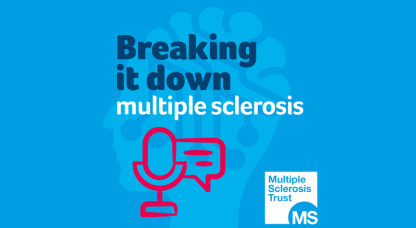The European Medicines Agency (EMA) has recommended that a licence should be granted for siponimod (Mayzent) for the treatment of active secondary progressive MS (SPMS).
Active secondary progressive MS is defined as people experiencing relapses or showing signs of inflammation in MRI scans
This is exciting news, as siponimod is the first oral drug to be licensed for secondary progressive MS in Europe. Secondary progressive MS has an impact on all aspects of people’s lives – physical, emotional, social and economic - affecting not only the person diagnosed, but also their families. We hope that the availability of a new treatment will lead to a renewed focus on the needs of all people with progressive MS and improve their access to services.
- David Martin, Chief Executive Officer, MS Trust
As someone with SPMS I am delighted that at last a treatment has been licensed for people like myself. For too long we have been excluded from services and been ignored, this decision provides an opportunity to slow our disease progression with the possibility of improving our quality of life immeasurably. Roll on NICE approval.
- Caroline Smith
The next step in the approval process is for the European Commission to grant the licence, taking into the consideration the EMA's recommendation. Siponimod will then be appraised by NICE and SMC to decide whether it is a cost-effective treatment for the NHS.
NICE has already started the appraisal process for siponimod and a decision is expected in May 2020. The MS Trust is responded to the appraisal. If NICE approves the use of siponimod, it could be available on the NHS by the end of 2020.
About siponimod
Siponimod is taken as a tablet, once a day.
In clinical trials for secondary progressive MS, siponimod reduced the risk of disability progression by 26% compared to placebo. Further analysis indicated a 37% reduction in the risk of progression for those with active SPMS (defined as those who had relapsed in the two years prior to starting the trial).
In clinical trials, low white blood cell count, increased liver enzyme levels, slower heart rate when starting treatment, macular oedema (swelling in the back of the eye affecting vision), high blood pressure, shingles, and convulsions occurred more frequently with siponimod than with placebo.


